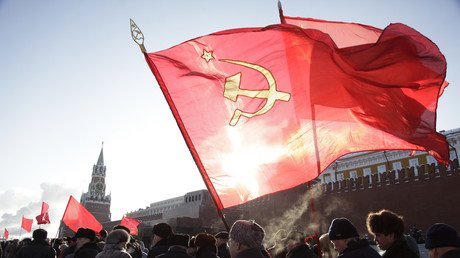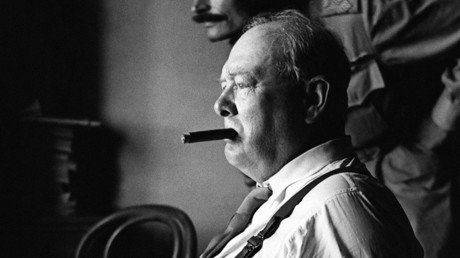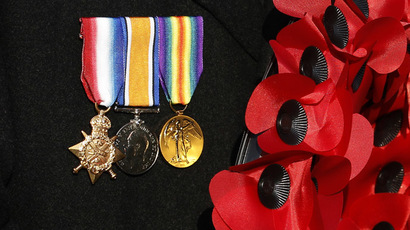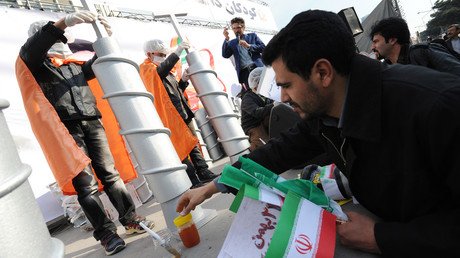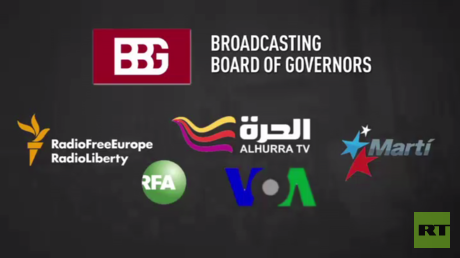‘Thank God for Russia!’ Remembering when London & Moscow were allies
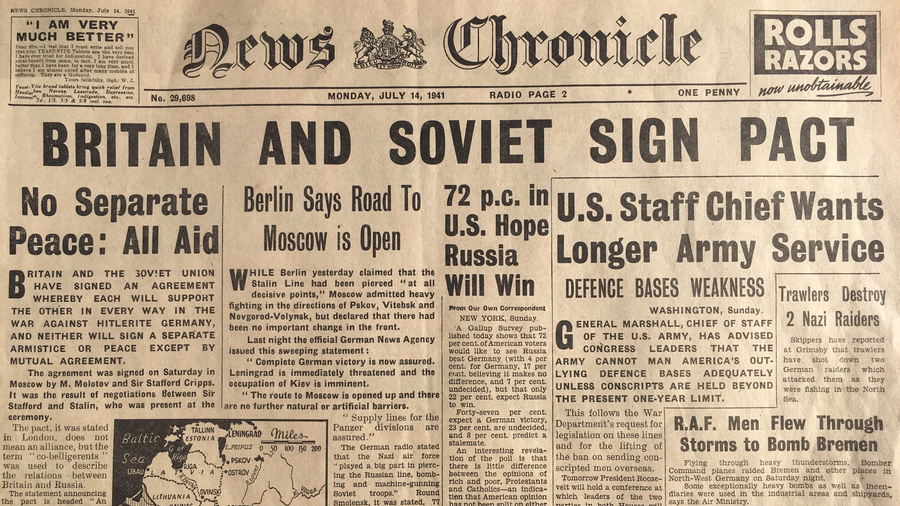
In the present geopolitical climate, the idea of a pact between the UK and Russia seems far-fetched to say the least. But in the summer of 1941 the two did come together against a common foe.
What lessons can be learned from the ‘Anglo-Russian agreement’ which played a key part in the defeat of Nazi Germany?
The date: Monday, July 14, 1941. The headline of the News Chronicle (price, one penny), states: ‘Britain and Soviet Sign Pact.’ Such a headline would have been unthinkable a few years previously. The British Conservative Party, the dominant member of the ‘National’ government which ruled Britain from 1931-1940, had been fiercely opposed on ideological grounds to the Bolshevik government in Moscow.
It was Tory leader and Prime Minister Winston Churchill who, 13 years earlier, had supported giving aid to the Russian armies who were fighting what he called“the foul baboonery of Bolshevism.”
When it came to expressing his views on Soviet communism, it’s fair to say that Churchill didn’t hold back. He compared Lenin, the father of the Russian revolution, to “a culture of typhoid or of cholera.” Yet here, in 1941, the British – led by Churchill, and the Soviets, were sinking their ideological differences and agreeing to support each other in every possible way against ‘Hitlerite Germany’ – and undertaking that neither would negotiate nor conclude an armistice or peace treaty except by mutual agreement.
Churchill had shown commendable pragmatism, something which too many of today’s leaders seem to lack. “No one has been a more consistent opponent of communism for the last 25 years,” he declared in a broadcast on June 22, the date on which the Nazis invaded the Soviet Union. “But all this fades away before the spectacle which is now unfolding…The Russian danger is therefore our danger, and the danger of the United States, just as the cause of any Russian fighting for hearth and house is the cause of free men and free peoples in every quarter of the globe.”
Could you imagine a neocon politician uttering words such as these today?
The historic agreement of July 12 was signed in Moscow by the Soviet Foreign Minister Vyacheslav Molotov and the UK Ambassador to the USSR, the Old Wykehamist Sir Stafford Cripps. One Joseph Stalin, and leading representatives of the British armed forces, were also present at the ceremony.
The agreement came at a time when the Soviets were in desperate need for assistance, as German forces continued to advance rapidly towards Moscow. Cripps urged Churchill to send supplies as soon as possible. Friction soon developed between Sir Stafford, who wanted more done to help the Soviet Union, and Churchill, who believed in prioritizing the Middle Eastern front.
The calls for a ‘second front’ in Europe to be opened up to take the pressure off the Soviets, and which Stalin himself had demanded, steadily grew.
The Soviet Union became very popular in Britain, and indeed in the neutral US – where the News Chronicle reported that 72 percent hoped that the Russians would win.
In his book, The Road to 1945, Paul Addison notes how the German invasion of the Soviet Union came at a time when it was difficult for the British, who had stood alone against the Nazis during the Blitz of 1940/1, to see how victory could be achieved. But that all changed when Hitler launched Operation Barbarossa. Addison records how ‘Home Intelligence’ captured the national mood on February 3, 1942: “Thank God for Russia’ is a frequent expression of the very deep and fervent feeling for that country which permeates wide sections of the public.”
Churchill, while welcoming the fact that Britain had a ‘co-belligerent,’ was, however, worried that the people’s admiration for the gallant Soviet war effort would go too far and lead to increased support for communist ideas at home.
He instructed the Ministry of Information “to consider what action was required to counter the present tendency of the British public to forget the dangers of Communism in their enthusiasm over the resistance of Russia.”
“The official authorities would have liked to depoliticise enthusiasm for Russia by concentrating on the military, patriotic and anodyne aspects of Russian life, but in practice this was very difficult,” says Addison. “The two politicians who presented themselves to the public in 1942 as champions of Russia, Cripps and (Lord) Beaverbrook, were both convinced anti-communists. But both found themselves singing the praises of the Soviet system.”
As I noted in an earlier OpEd, Lord Beaverbrook, a right-wing newspaper magnate, could not have been more effusive in his praise for the Soviet Union and its leader.
“Communism under Stalin has produced the most valiant fighting army in Europe. Communism under Stalin has provided us with examples of patriotism equal to the finest annals of history. Communism under Stalin has won the applause and admiration of all the Western nations. Communism under Stalin has produced the best generals in this war,” Beaverbook wrote.
Can you imagine Rupert Murdoch or Lord Rothermere saying the same things about Putin and Russia, today?
It’s worth noting too that the US, when it was still neutral, was urging Britain to improve supplies to Russia. Was anyone claiming then that FDR was a secret Kremlin agent, as they say about Trump in 2018?
In the end, British supplies to the Soviet Union in the second half of 1941 and 1942, transported via the dangerous Arctic shipping routes, did play an important part in checking the seemingly unstoppable Nazi advance. Britain supplied urgently needed tanks, aircraft and machine tools. Overall between 3.5 and 4 million tons of cargo were delivered, greatly boosting the Soviet war effort. In May 1942, the Anglo-Soviet agreement was strengthened still further with the signing of an Anglo-Soviet Treaty, which established a formal military and political alliance.
Those who served on the ‘front line’ of this alliance have not been forgotten. In May 2015, Russian medals were presented to the Scottish veterans of the Arctic convoys on Victory Day. “The Russians have always been so kind to us. I spent two months in Russia, and your people shared everything they had with me, although they didn’t have much for themselves. I would be ready to do something for you again, whatever you ask,”said veteran James Osler.
In August 2016, five more British Arctic convoy veterans were honored by Russia.
While in October that year, the 75th anniversary of the Arctic convoys was marked at a special event in Liverpool.
Looking back at the World War II co-operation between Britain and the Soviet Union, and the positive difference it made to the course of world history, should make us ask the question: If then, why not now?
Why can’t British politicians chart a new course in relations with Russia and seek to work together with Moscow on areas which should be of common concern, such as countering terrorism, dealing with climate change and bringing a lasting peace to the Middle East? Do we really need a Nazi threat to make our leaders come to their senses and drop their old hostilities?
Let’s leave the last word to the News Chronicle, a newspaper whose humane and common sense approach to world affairs, is greatly missed today. In its editorial of July 14, 1941, entitled ‘Pray Silence,’ it declared: “So, by the devious and paradoxical routes which current history has adopted, what many of us hoped two years ago would happen and some hoped, successfully, might be avoided, has now come to pass. It is a miraculous gift. The unexpected has happened…No question of ideologies is relevant. Two great peoples find themselves fighting for their lives against the same ruthless enemy. That is the only thing that matters and it is tremendous.”
Follow Neil Clark on Twitter @NeilClark66
Think your friends would be interested? Share this story!
The statements, views and opinions expressed in this column are solely those of the author and do not necessarily represent those of RT.

